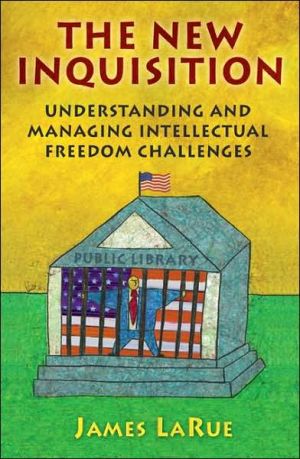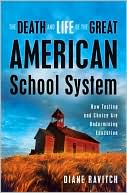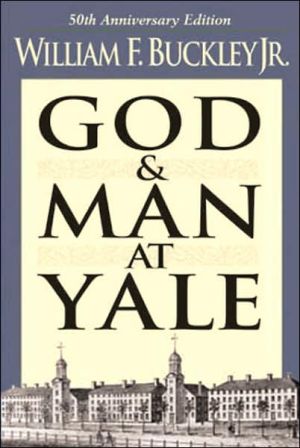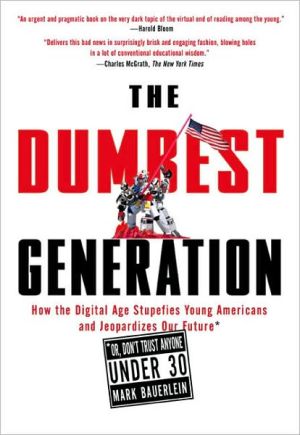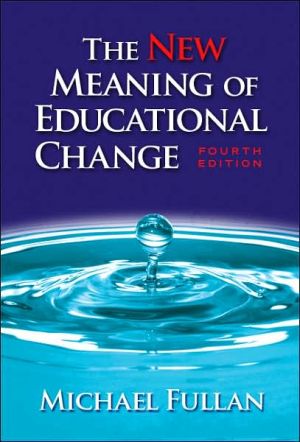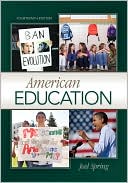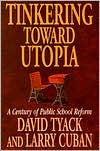The New Inquisition: Understanding and Managing Intellectual Freedom Challenges
How can you become an effective advocate for intellectual freedom and patron privacy while maintaining a positive relationship with diverse elements of your community? Drawing on his experience as library director, this author advocates assuming a proactive role in every library function, from collection building to community outreach. This approach helps you understand the people who challenge library materials—as individuals and as members of various groups—turning enemies into allies and...
Search in google:
How can you become an effective advocate for intellectual freedom and patron privacy while maintaining a positive relationship with diverse elements of your community? Drawing on his experience as library director, this author advocates assuming a proactive role in every library function, from collection building to community outreach. This approach helps you understand the people who challenge library materials--as individuals and as members of various groups--turning enemies into allies, and building an intellectual, freedom-friendly community. You'll learn what materials get challenged and why and how you can effectively respond to challenges while meeting diverse community needs. Here are stories from the frontlines, practical guidelines on policies and procedures as well as common-sense tips on how to maintain your cool while dealing with specific groups or individuals--all presented with common sense and humor. If you have been struggling with challenges and wonder how you can uphold your ideals while dealing with harsh realities, this is the book you have been waiting for. "Public libraries must prepare for intellectual freedom challenges by instituting policies outlining their organizational procedure for reconsideration requests. With established policies and procedures in place, library staff can approach customer challenges with confidence and composure, while remembering to treat them the respect and dignity they deserve. The New Inquisition is recommended for all frontline library staff and highly recommended for library administrators and managers who respond to formal intellectual challenges."Public Libraries
Acknowledgments ixIntroduction: The Blue Line xiThe Need for and Purpose of This Book xiiiScope and Audience xiiiBackground: A Historical Perspective 1History of Censorship: The Burning of Books 1Definitions 3The Constitution and the First Amendment: Foundations of Intellectual Freedom 5The Library Bill of Rights 15But What about the Children? 19Obscenity 20Religion and Libraries 27Big 16 28Madonna 30Focus on the Family 34The Church of Jesus Christ of Latter-Day Saints 44The Difference between FOF and the Mormons 49Reading with the Enemy 50Generations 57Types and Life Cycles 59Public Education: A Profile 61Focus on the Family: Redefining the Mission 65Anything Goes? 67Responding to Challenges 71Who Are They? 71The Initial Response 74The Written Responses: Letters 80When the Issue Doesn't Die 84Beyond the Basics: Taking It to the Street 89The Pyramid Model 89Geographic Information Systems 94Becoming a Player 95The Rubber Chicken Circuit 99Public Speaking and Writing 99Using Your Reputation 100Newspaper Columns 101Other Media 103Politics 104Professional Activity 107Conclusion: The Fourth Turning? 109Kid Stuff 109I Pledge Allegiance to the Flag... 109Tancredo and Immigration 113There Is Always a New, a Next Inquisition 115Appendix 117Letters 117Columns 144References and Resources 149Reference List 149Intellectual Freedom Resources 150Index 153
\ From the Publisher"This is a fresh, new and timely look at an old issue. LaRue puts a spirited case for dealing face-on with challenges - not being defensive, meeting the emotion, getting the tone right, offering alternatives, discussing the issues, following up the user's concerns, accepting that at times the matter will involve senior managers. Even though the context is U.S. public libraries, the issues here will translate into public libraries anywhere, and into school and children's libraries too. It is a real-life book about meeting challenges in an adult professional way."\ -\ Library Review\ "[E]xamines the history of censorship, the fundamental role of libraries in defending freedom of information and the core documents of our profession….[a] sensible, practical approach to understanding and connecting with your community as a solid foundation to dealing with challenges."\ -\ Urban Libraries Council Newsletter\ "Reading the US Constitution periodically is a good idea, particularly while you are waiting for a special interest group bent on censorship to show up for a loud meeting. LaRue, a county-level director of libraries and therefore a battle-scarred veteran of the intellectual freedom wars, gives practical advice about resolving conflict with those who would limit access to certain information. He gives an historical perspective on the banning and burning of books, including the ever-present question of what children should be allowed to learn, the influence of certain religious and social groups, and the generation-driven aspect. With each he gives ways to find common ground and reasons to read together, and also lists ways to get the community involved in issues such as extending the network you already have, getting media involved, using your reputation and even working your way through the rubber chicken circuit."\ -\ Reference & Research Book News\ "Using his own experience, as well as his sense of humor, LaRue describes the kinds of challenges libraries typically face and the most effective ways to respond to them and even head them off. Dealing with intellectual freedom challenges may never become one of your favorite parts of the job…. [b]ut at least, armed with this book, you'll be better prepared"\ -\ American Libraries\ "La Rue does what librarians do best--research. The book begins with a brief history of book censorship and moves to the origins of the Constitution and the Library Bill of Rights. With lively writing about relevant and current issues, the reader is engaged with example letters from concerned patrons provided. La Rue also includes Sample Request for Reconsideration forms and responses to past patron concerns, all of which are excellent resources for frontline librarians as well as the new generation of library students concerned about challenges to intellectual freedom."\ -\ Colorado Association of Libraries\ "James LaRue offers fresh advice on dealing with requests to pull books from public library collections. In an engaging anecdotal style, LaRue recounts numerous examples of real-life intellectual freedom challenges he has encountered during his years as director of a Colorado library system….LaRue advises preparation, but this book's most important contribution is its emphasis on the establishment of trust. LaRue;s most practical advice, and the approach that informs all aspects of this text, is, know your users…..The New Inquisition is an entertaining and valuable read: LaRue's narrative voice is wholly likeable and reasonable. The book contains a good index and a short and very useful reference and resource list. It will make a good companion to other texts on the topic and is recommended for public libraries and academic libraries with a library studies program."\ -\ Reference & User Services Quarterly\ "Public libraries must prepare for intellectual freedom challenges by instituting policies outlining their organizational procedure for reconsideration requests. With established policies and procedures in place, library staff can approach customer challenges with confidence and composure, while remembering to treat them the respect and dignity they deserve. The New Inquisition is recommended for all frontline library staff and highly recommended for library administrators and managers who respond to formal intellectual challenges."\ -\ Public Libraries\ \ \
